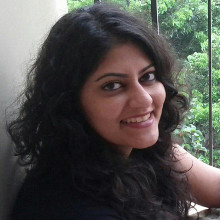Sumit Chowdhury is the founder of Gaia Smart Cities. He is a thought leader in technology-based transformation of companies and is now focused on solutions for smart cities and the Internet of Things. In this podcast he talks about how the smart cities agenda will drive collaboration, what’s happening globally in this area, and the opportunity and hurdles in the way of implementing smart cities in India.
In Part 1, he talks about how Prime Minister Narendra Modi's plan to create a 100 smart cities—a theme-based funding idea—will allow many ideas to be pooled together and implemented across the country.
The smartness is about measurement and improvement. When cities measure consumption in granular detail and share that data openly, it allows for improved delivery of common utility services like water, power, sanitation. It helps them plan better for peak capacity by identifying areas of overcapacity and expand services to areas where there is a shortage.
Chowdhury also talks about how the UK, the Netherlands, France, Spain and the US are driving some of this agenda.
In Part 2, He talks about the initial hurdles, ideas that will foster collaboration, and what smart cities will look like 10 years from now.
The biggest problem is that companies interested in smart cities will have to compete for funds, as the size of the allocation has been fixed. This will lead to secrecy, but eventually they will collaborate.
He talks about the six plus six model: six cities in a state can come together for synergy in solving common problems in water, power, education. Each can adopt villages around it and help create smart villages.
Eventually, states can collaborate to solve national-level problems. He gives the example of Ganga pollution—it concerns all the states the river flows through. Also, the theme-based aspect of the smart cities agenda means that things are interrelated--the clean Ganga programme is also a part of Swachh Bharat and smart cities.
In Part 3, he elaborates on the role India could play in frugal innovation for smart cities—systematic innovation that can be scaled at the national level.
Smart cities is a classic case of interdisciplinary collaboration to solve problems. Various Indian universities have been working on this as well, but the researchers need practical data and practical problems to solve.
Collaboration—between companies, governments, government departments—is the key. Create network of networks, identify the best minds and use them to solve common problems.


